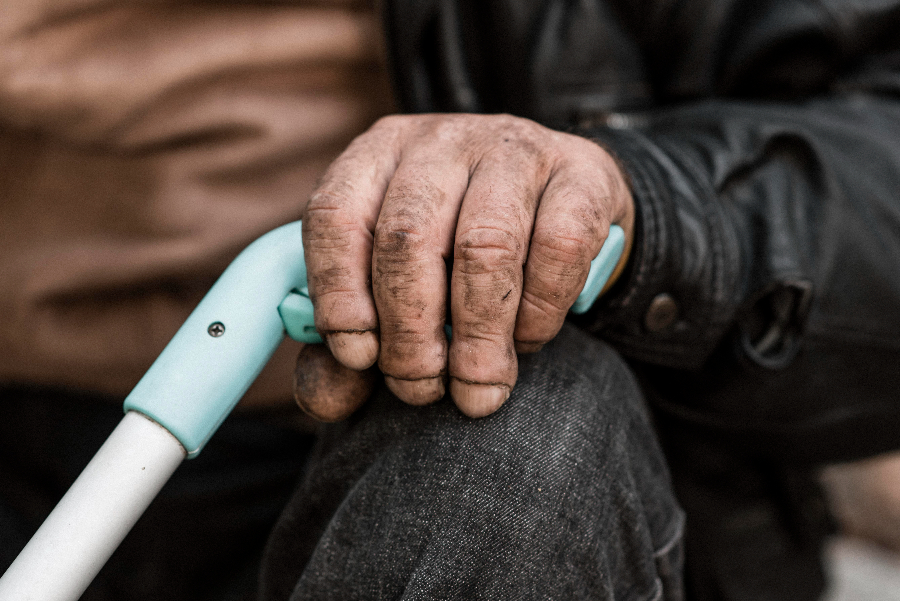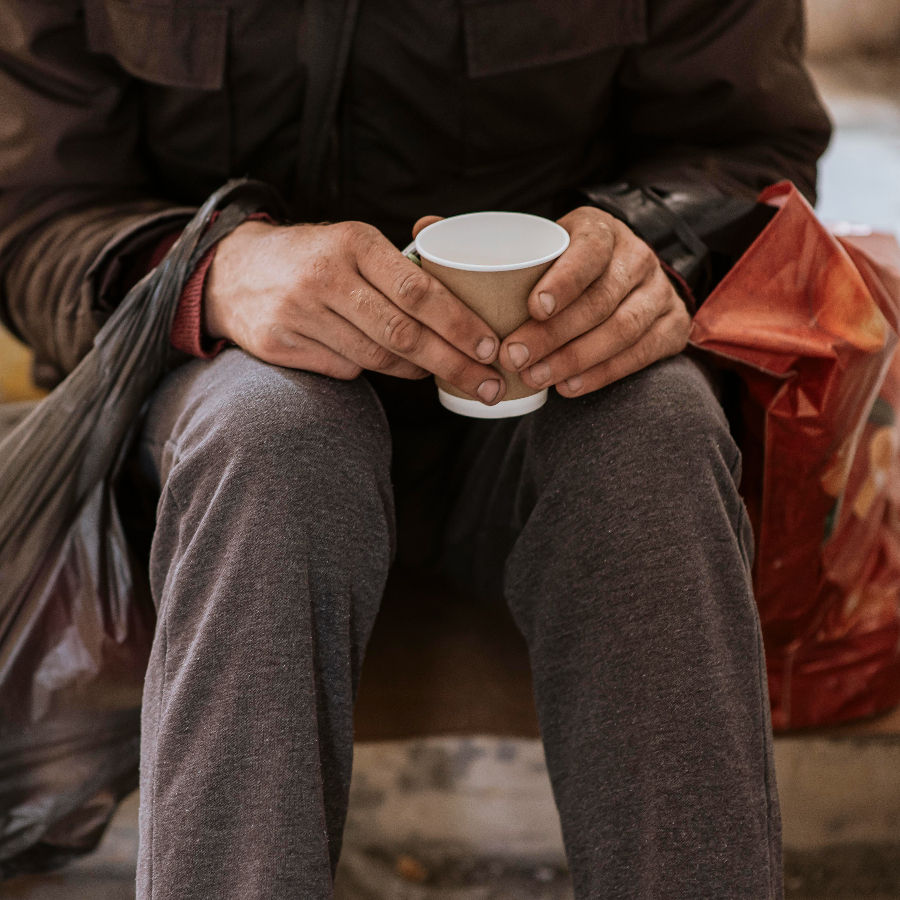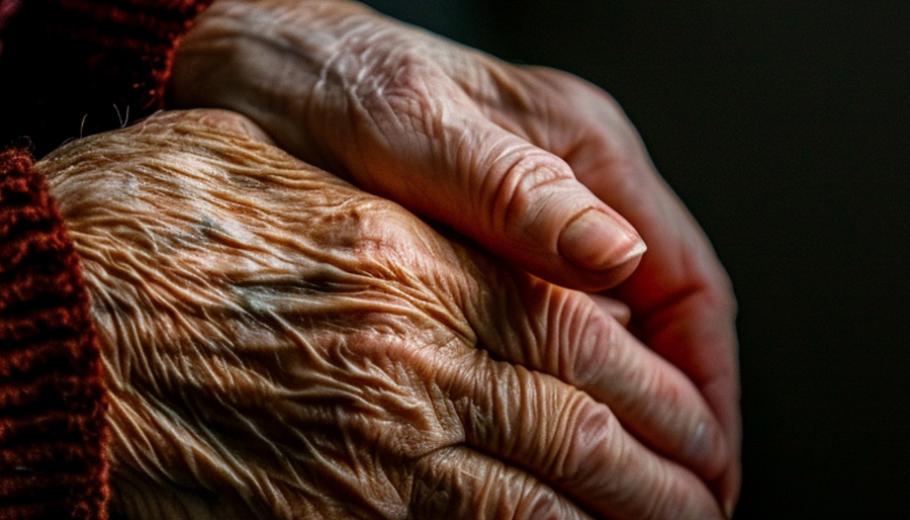People who live an aging process on the street have additional difficulties, since they are not of working age and, often, they do not have a benefit or a relational network either, concludes a report by the XASPLL in which Suara participates in the Editorial Board.
The "Diagnosis 2024. The situation of homelessness in Barcelona. Evolution and relationship between homelessness and ageing", this year emphasizes the elderly who live in a situation of homelessness and how this reality triggers premature ageing. This report of the entities and the Barcelona City Council that are part of the Homeless Care Network (XASPLL), has been drawn up by the Metropoli Institute with the participation of Suara Cooperativa, which has coordinated the Editorial Board
"Aging affects differently depending on the situation, especially if you don't have a network or stable housing or accommodation", explains Maite Mauricio, homelessness expert from Suara Cooperativa and coordinator of the XASPLL Commission for Diagnosis and Counting and of the Editorial Board of the Report, which has been responsible for preparing this study.
The study, which was presented today, is based on data taken from the last count drawn up last May, shows that, currently, there are 1,244 people sleeping on the streets of Barcelona and 2,860 staying in residential resources of the XASPLL, of which 8.6% are 65 years or older.
The report warns that different studies show that the population over 50 in a situation of homelessness could triple by 2030 as a result of structural factors such as economic insecurity, the erosion of social support networks or the premature deterioration of people in a situation of serious social exclusion or on the streets.
On the other hand, according to different professionals in the homelessness sector, they show that the situation experienced in 2020 and 2021 as a result of the Covid-19 pandemic has led to an increase in housing insecurity and a worsening and deterioration of health of the people served, especially in relation to mental health and emotional suffering.
Living on the streets also has the added effect of causing premature aging situations, as expressed by a worker at a homelessness resource included in the report. "Before, it's true that there weren't that many single elderly people in these situations, before they were always in families. It's been a few years, maybe ten years, that we've been detecting it. And we meet people who are close to 60 years old who cannot enter a residence because they do not meet the age limit, but they are already people with the beginnings of dementia", defends this witness.

Difficulties of elderly people living in a situation of homelessness
If living in a situation of homelessness is already extremely vulnerable for anyone, this is accentuated for people who are 65 years of age or older. In many cases, these people find that they are not of working age and that they do not have any kind of financial benefit or the one they have is insufficient to pay for a flat or basic day-to-day expenses such as food. This situation occurs because throughout their lives they have worked in the informal economy or they are people of various origins who have not been able to work and/or regularize their situation in the Spanish state. This is how some of the witnesses included in the report explain it:
"It turns out that I can't retire, because I hadn't contributed in the last few years, when I'm older than what's necessary to be retired. It's been a hell of a lot."
"My problem is that I have no income. With fishing, I already paid for the room and I had a little left over to live on. But in 2006 my illness was already more serious and I could not work. But then I couldn't renew my registration and from 2007 to 2016 I was without a health card, and I couldn't go to the doctor. I couldn't get anything."
"I was very angry when I arrived, that I was 69 years old and they didn't let me work.
I came from Cuba, but I am a professional and here the laws are different, you have to accept that when you are of an age where you can no longer work and can only collect a pension. And the pension is for the workers from here in Spain, because it depends on taxes".
The second major handicap is that many of these people do not own a home and, therefore, the lack of financial resources prevents them from having access to housing, which leads them to live on the streets in very precarious situations aggravated by mental health problems or other age-related diseases such as senile dementia.
"There is the issue of situations where your health declines, such as a stroke or cognitive impairment. They send them to a residence where they are told that they do not have experience in caring for these people", said Mauricio in a press conference, in which Carme Fortea, director of Homelessness Services (IMSS), Carmen Guasch, from the Dit i Fet Association, Albert Sales and Laura Porzio from the Metropoli Institute, and Sònia Fuertes, Social Action Commissioner of Barcelona City Council.
This, however, is not the only drawback. Recently, Suara Cooperativa, through the portal of the Aliura department, presented a report highlighting that the majority of people who take care of a family member are women. Now, in the case of elderly people in a situation of homelessness, the reality is more worrying, unfortunately they live on the street or in residential resources that do not care for the elderly and do not have a network of people who take care of them. It should also be noted that this lack of network also directly affects the emotional well-being of the person.
"The fact that there is a female carer is not given here, there is no one to look after them. What sustains aging in our home are family networks and there are none here", argues Mauricio.
Faced with this situation, the recommendation of the XASPLL is to enable permanent housing resources, not temporary, for those people who are living an aging process in a situation of homelessness where they can not only live, but also be cared for in if they have any mental or physical health problems.
Evolution of the homelessness situation in Barcelona
In 2020, it is estimated that there were a total of 921 people sleeping on the streets of Barcelona, a figure that this year has risen to 1,245 people, which represents an increase of 39% in five years. With regard to the people served by XASPLL resources, there has been a 2% increase, going from 2,808 people in 2020 to the current 2,860. In the last decade, the number of homeless people living on the streets has increased by 74.13% (in 2014 there were 715); while the number of people treated by XASPLL resources has increased by 83.22% (in 2014 they were 1,561).

In detail, currently, of the people who spend the night in some of the resources offered by the XASPLL, 35.5% do so in residential centres, 41.6% in flats and 23% in pensions or rooms.
In terms of socio-demographic data, 54% of people staying in a XASPLL resource are men, 29% women, 0.3% non-binary gender and 16.7% minors. Unlike in May 2022 when 10.4% of underage women were registered, this year none have been registered. By age, 22% are between 18 and 30 years old; 31.3% between 31 and 50 years; 23.9% aged 51 to 64 and 8.6% over 65.
On the other hand, in relation to the nationalities of the population served, the proportion of Spanish people is at a historic low of 28.5%. People of Community nationality are 9.9% and those of non-Community nationality, 58.4%. The proportion of people in a situation of administrative irregularity constitutes 30.5%, of which 3.1% are applicants for international protection.
Finally, the proportion of people without income stands at 46%, while 13.3% do some paid activity; 10.3% receive the guaranteed citizenship income; 2.5%, the minimum vital income; 9.9%, the non-contributory pension. Therefore, only 30.6% of the homeless people served by the XAPSLL receive any public benefit.
"These reports help us to rethink the care and support models for people, taking into account their life cycle and personal circumstances", concludes Mauricio. For his part, Carles Prieto, also from Suara Cooperativa, recalls: "You have to keep in mind that behind the data there are not only numbers, there are people".



